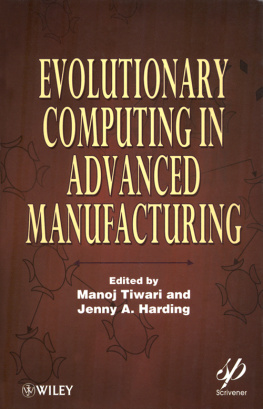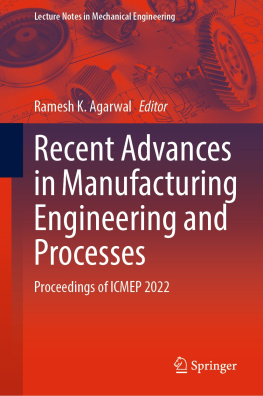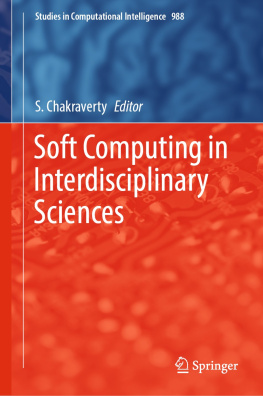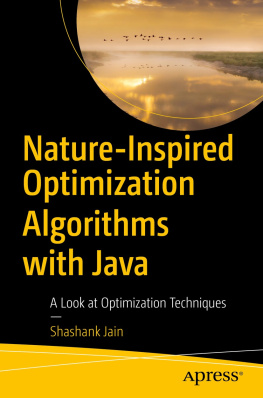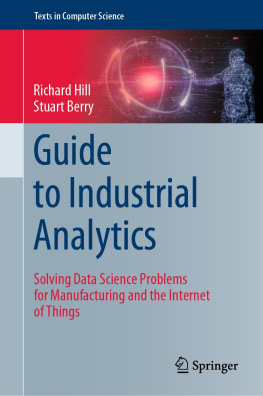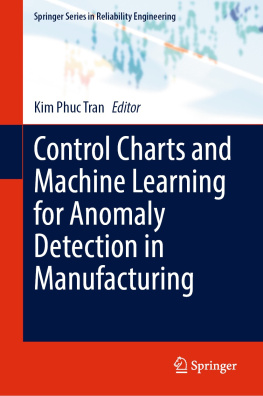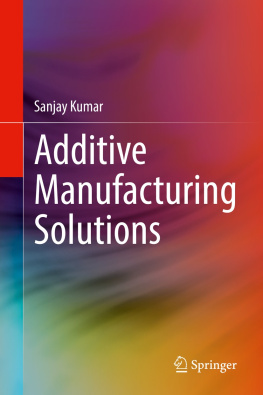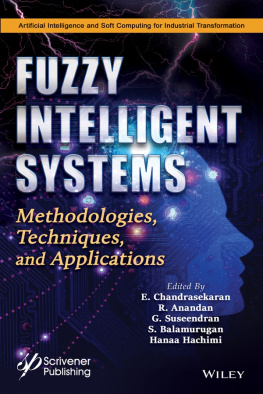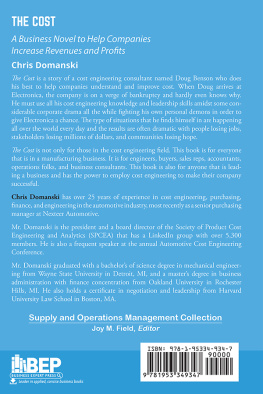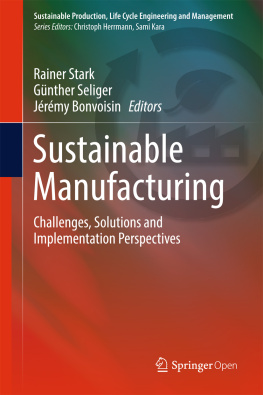Evolutionary Computing in Advanced Manufacturing
Scrivener Publishing
3 Winter Street, Suite 3
Salem, MA 01970
Scrivener Publishing Collections Editors
James E. R. Couper
Richard Erdlac
Pradip Khaladkar
Norman Lieberman
W. Kent Muhlbauer
S. A. Sherif
Ken Dragoon
Rafiq Islam
Vitthal Kulkarni
Peter Martin
Andrew Y. C. Nee
James G. Speight
Publishers at Scrivener
Martin Scrivener ()
Phillip Carmical ()
Copyright 2011 by Scrivener Publishing LLC. All rights reserved.
Co-published by John Wiley & Sons, Inc. Hoboken, New Jersey, and Scrivener Publishing LLC, Salem, Massachusetts.
Published simultaneously in Canada.
No part of this publication may be reproduced, stored in a retrieval system, or transmitted in any form or by any means, electronic, mechanical, photocopying, recording, scanning, or otherwise, except as permitted under Section 107 or 108 of the 1976 United States Copyright Act, without either the prior written permission of the Publisher, or authorization through payment of the appropriate per-copy fee to the Copyright Clearance Center, Inc., 222 Rosewood Drive, Danvers, MA 01923, (978) 7508400, fax (978) 7504470, or on the web at www.copyright.com . Requests to the Publisher for permission should be addressed to the Permissions Department, John Wiley & Sons, Inc., 111 River Street, Hoboken, NJ 07030, (201) 7486011, fax (201) 7486008, or online at http://www.wiley.com/go/permission .
Limit of Liability/Disclaimer of Warranty: While the publisher and author have used their best efforts in preparing this book, they make no representations or warranties with respect to the accuracy or completeness of the contents of this book and specifically disclaim any implied warranties of merchantability or fitness for a particular purpose. No warranty may be created or extended by sales representatives or written sales materials. The advice and strategies contained herein may not be suitable for your situation. You should consult with a professional where appropriate. Neither the publisher nor author shall be liable for any loss of profit or any other commercial damages, including but not limited to special, incidental, consequential, or other damages.
For general information on our other products and services or for technical support, please contact our Customer Care Department within the United States at (800) 7622974, outside the United States at (317) 5723993 or fax (317) 5724002.
Wiley also publishes its books in a variety of electronic formats. Some content that appears in print may not be available in electronic formats. For more information about Wiley products, visit our web site at www.wiley.com .
For more information about Scrivener products please visit www.scrivenerpublishing.com .
Cover design by Russell Richardson.
Library of Congress Cataloging-in-Publication Data:
ISBN 978-0-470-63924-5
Preface
The increasing availability and use of computers in engineering has significantly changed production and manufacturing domains, since computer-controlled manufacturing systems can greatly improve the quality and pace of production. In the current era of highly competitive, global environments, industries are facing immense pressure to deliver new products more cheaply and quickly, with greater product variety and shorter life cycles. Industry therefore requires effective planning and optimal results in all stages of production, from raw material acquisition to final delivery. Traditional methods are often inappropriate and cannot deal with the planning demands of the advanced technology and requirements in modern manufacturing systems. In the recent years, evolutionary computing has gained popularity for solving manufacturing related problems.
Although many research papers and proceedings exist on evolutionary computing in production and the manufacturing realm, there are hardly any books which coherently present and explain both aspects (i.e. evolutionary computing in the context of manufacturing problems). In most research papers, production and manufacturing problems and evolutionary computation approaches are only loosely coupled which makes it difficult for readers to understand the implementation parts of the algorithms.
In this book, we have addressed the research issues related to evolutionary computing in the manufacturing domain. We have invited contributions from various learned researchers with significant expertise in the field of computational intelligence for advanced manufacturing. Each chapter explains explicitly the research related issues and ways of implementing computational intelligence techniques.
With this composition, we aim to provide readers with a good basis for understanding the development of mathematical models for production and manufacturing related issues. In addition to the mathematical models, various evolutionary algorithms such as Genetic Algorithm (G A), Particle Swarm Optimization (PSO) etc. have been discussed from their fundamentals to implementation aspects. This book will therefore help scholars, researchers and practitioners in understanding both the fundamentals and advanced aspects of computational intelligence in production and manufacturing.
The Structure of the Contributed Chapters
In this book, chapters 1 and 2 deal with the production and process planning issues and describe the basic Genetic Algorithm (GA) and Ant Colony Algorithm (AGO). Chapter 6 and chapter 11 introduce the Immune and Psycho-Clonal Algorithm in operation allocation and fault diagnosis problems respectively. Chapters 3, 4, 5, 7, 8, 9 and 13 provide variants of different algorithms. In chapter 3, the set up and process planning problem is described with a hybrid Genetic Algorithm. Chapter 4 uses cellular particle swarm optimization (CPSO) in the supply chain and product development domain. A variant of GA, Genetic algorithm with chromosome differentiation (GACD) in process plan selection is presented in chapter 5. A description of tool selection and hybrid simulated annealing (SA)-Tabu search algorithm has been explained in the chapter 7. In chapter 8, production planning has been integrated with automated guided vehicles (AGV). In this chapter the use of an enhanced memetic particle swarm optimization (EMPSO) has also been explained. Chapter 9 explains the assembly planning problem in the aircraft industry and uses the self guided ant colony algorithm, which is a variant of the ant colony algorithm (ACO).
Chapters 10, 12 and 13 introduce the most recent research issues in the production and manufacturing field. The benefits of additive manufacturing along with its applications using evolutionary computing have been explained in chapter 10. Chapter 12 deals with the product and platform performance issues in stochastic demand conditions. In the final chapter, a brief introduction to virtual enterprises (VE) has been presented, and the most difficult part in the formation of VE i.e. partner selection problem, has been discussed in the context of a hybrid particle swarm optimization(PSO) and ant colony optimization (ACO) algorithm.
Although there are many variants of evolutionary algorithms which we have not discussed here, the basic ideas behind the algorithms have been provided explicitly. We hope that readers will both enjoy and benefit significantly from this book.
Dr. J.A. Harding & Prof. M.K. Tiwari
List of Contributors
David Ben-Arieh is a Professor of Industrial Engineering at Kansas State University. His industrial experience includes working for AT&T Bell Laboratories and consulting for the aerospace industry and NASA. His research interests concentrate mainly on applications systems design and modeling and holds one patent in this area. In recent years Dr. Ben-Arieh has focused on applications in product development and innovation as well as in Health Care Systems Management, including patients flow, information systems integration, and patient quality and safety improvements.

